“Earth provides enough to satisfy every man's needs, but not every man's greed” - Mahatma Gandhi
Director/Lead Researcher:
Design Principal: Jacob Mathew
Lead Researchers: Varun Gupta, Akshay Prakash, Ritu Sonalika
About Impact Edge
The Impact Edge Lab seeks to converge design, business, and social impact through entrepreneurial activity. The Lab is envisaged as an incubator-accelerator where ideas are explored, concepts tested out and enterprises accelerated.
The Impact Edge Lab will create and facilitate research opportunities at Undergraduate, Postgraduate and Doctoral levels that are application oriented and deployable for underserved, under-represented communities. The Lab being a joint initiative with Industree Foundation, offers a base for Post Development studies scholars to engage in research on community owned regenerative enterprises alongside with activities that support the building of an enabling ecosystem. Industree Foundation is a not for profit that is a systemic change maker in artisanal production and is a living lab for innovations developed through Impact Edge Lab. Industree brings to Srishti the ability to work in real world contexts with real people and promotes the notion of Creative Manufacturing as an important sector in sustainable national and global development. Srishti brings to Impact Edge pedagogical expertise, a community of practitioners and academic rigour in plan-do-validate cycles.
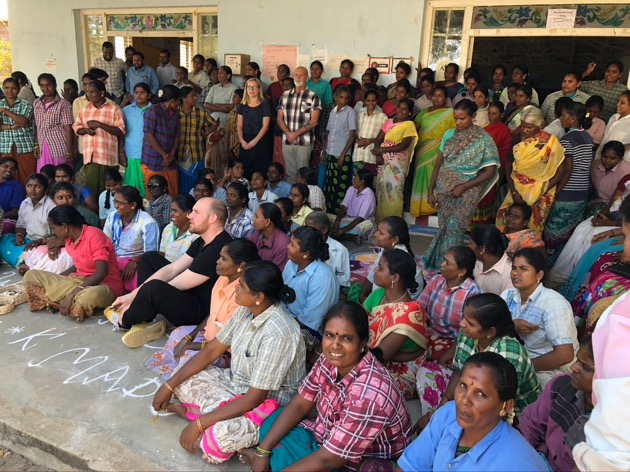
Can design be used as force for creative impact making? New ways of working, producer ownership-based models, women owned collective enterprise an example of working collaboratively with global buyers.
Vision
The primary aim of an impact enterprise is not to maximize profits but to profitably maximize impact.
The lab creates new economic models, systems of application and practice in an open innovation framework. The questions that Impact Edge Lab seeks to answer include: that current modes of enterprise ownership and wealth creation focus on the top 1% of the population, how might new models serve the other 99%. Questions such as the nature of unbridled vs conscious consumption, slow vs fast, concentrated vs distributed ownership, sustainable vs unsustainable are probed, understood and solutions framed, tested, and readied for scale.
It will examine the paradigm of people, planet, purpose and only then profit, using businesses as a regenerative solution to current problems. This is in synch with Srishti Manipal’s vision of creative impact making, by engaging collaboratively with People, Public, Private and Plural sector stakeholders to effectively leverage the strengths that each of them would bring to enable transformative change for the society and planet.
The United Nations: Sustainable Development Goals are a focus area for the Impact Edge lab and its activities are about re-futuring rather than de-futuring the planet for next generations.
“The fact that a belief system is deep rooted does not mean it cannot change” - Edgar Morin a contemporary French Philosopher.
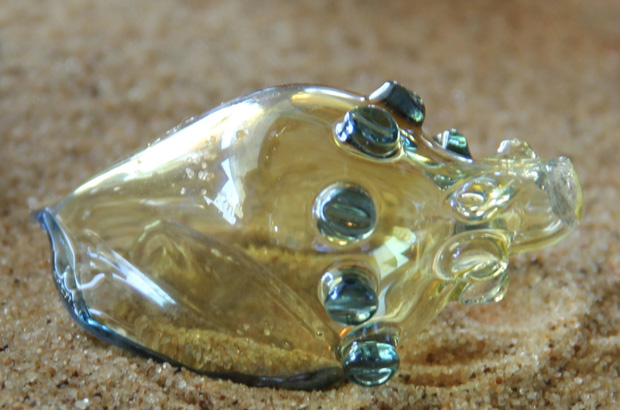
Research revealed that much of the sea shells used in crafts in seaside tourist centres are illegally sourced and often violate CITES (Convention on International Trade in Endangered Species) guidelines. An alternate craft form is suggested in place of animal products.
Research Areas
The lab explores the following lines of inquiry
Materials and Processes
What are the new materials and processes that are kinder and gentler to both people and environment?
New sustainable natural materials that can be processed and value added by local communities such as natural fibres, bamboo, water hyacinth, lantana, banana fibre, bacterial cellulose etc. These would be the basis for new regenerative circular and carbon positive futures. An integrated value chain approach would include growing, extraction, primary processing, product and service design, branding, communication, and marketing strategies. This will build on some of the past research on materials like banana fibre as sustainable textile material, water hyacinth, sisal fibre for packaging applications and bamboo as a timber substitute that helps sequester carbon.
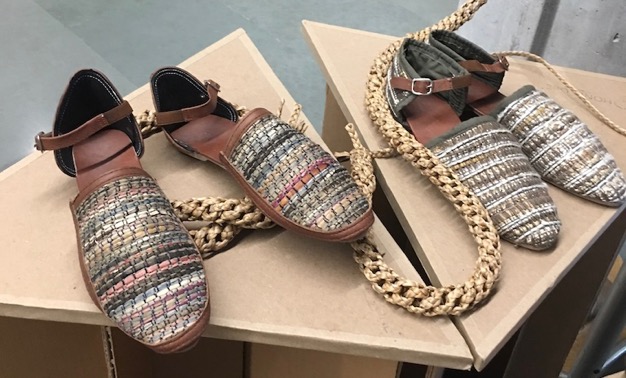
New material development, using water hyacinth: transforming waste to wealth.
What might new Innovative Business models for Impact Entrepreneurship be like?
Developing innovative business models and inclusive enterprise structures and the innovative financial instruments that can finance them are just some of the innovations the sector needs. Business model innovations include systems of production, organisation structure, enterprise systems, service design etc.
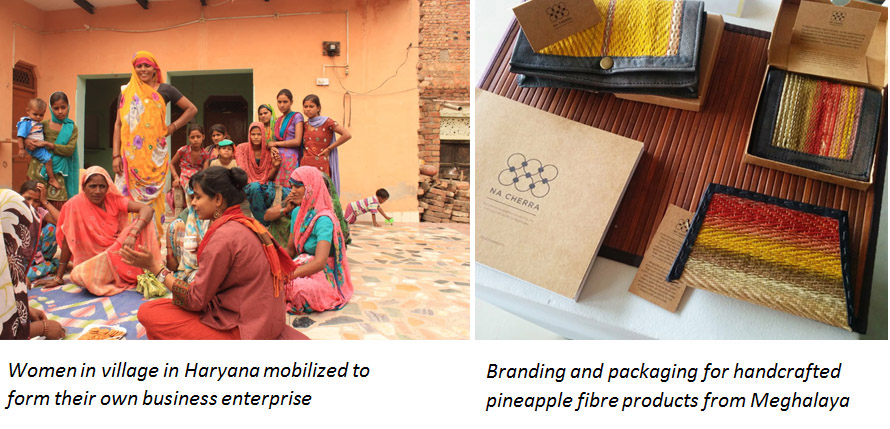
How might one develop the pedagogies for Impact Entrepreneurship?
Curriculum design of course ware that promotes Impact Entrepreneurship across our Undergraduate, Postgraduate and Vocational programs, by developing the pedagogical tools and frameworks for promoting community owned inclusive enterprises for ownership, autonomy, and agency. The theory, the practice, the delivery methods and measurement & evaluation of capacity building and self-efficacy in the targeted communities are potential areas of research and development.
How might one develop the enabling ecosystem to sustain regenerative businesses that mainstream businesses already enjoy?
Develop the tools, frameworks and interfaces that are required to connect and aggregate regenerative enterprises at a global level, that facilitate co-creation and collaborations at scale for impact.
Incubation of Impact Enterprises
Incubate and accelerate regenerative enterprises both for aspiring entrepreneurs within the Srishti-MAHE ecosystem and invite aspiring and working entrepreneurs from outside to support them with cutting edge support, incubation, mentorship and access to world class resources.
Ongoing Research Projects
The following research projects are structured for undergraduate thesis projects, faculty collaborations and postgraduate student engagement at both master’s and PhD levels.
New Textile Fibres:
Explore natural fibres from agri waste and species that can restore degraded land like Banana, Sisal, Nettle, Pineapple etc that could over a period reduce dependence on cotton and synthetic fibres that do not biodegrade and are hard to upcycle or recycle. This includes growing, extraction, processing, business model development branding and marketing.
Industree Foundation has pilot plant for bio extraction of banana fibre in Tamil Nadu alongside Green Kraft a producer owned enterprise that makes banana bark products an agri waste.
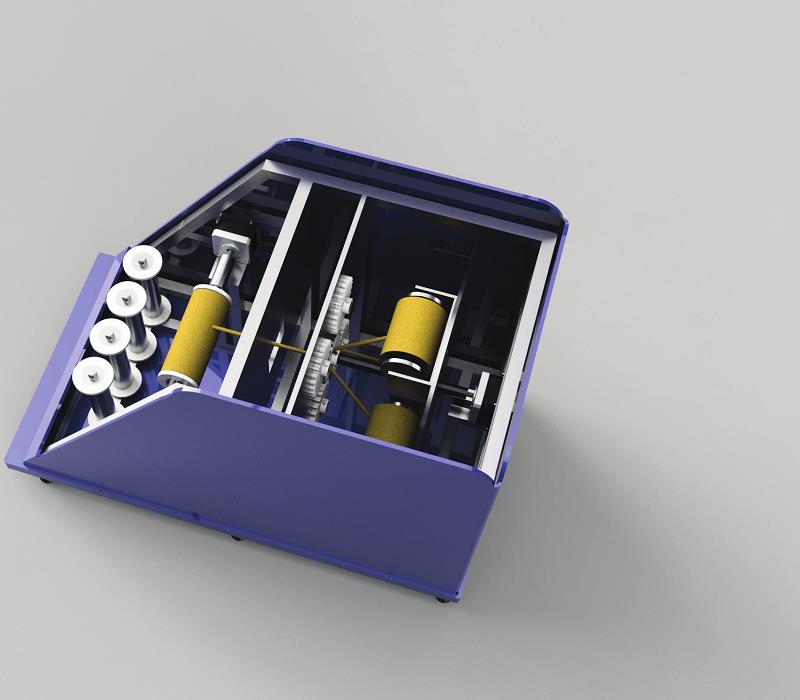
Tabletop banana yarn twisting machine, part of the ongoing alternate textile fibres research project.
Sustainable Packaging:
Explore and develop alternatives to conventional packaging material that is both cost effective and has a significantly lesser carbon footprint using materials that are derived from invasive species like water hyacinth and agri-waste. As conscious consumption gets a boost, Impact Edge Lab would also seek to find new opportunities and avenues that would scale up the use of these alternatives across the value chain in the space of sustainable packaging.
Innovative Finance Instruments
Industree Foundation’s ongoing project includes product development, enterprise formation, product and market development, the design of an innovative Pay for Success financing model for a bamboo value chain enterprise owned and managed by tribal communities in Karnataka. The PFS model is a selected pilot of Catalyst 2030 a global collaborative of social entrepreneurs and development organisations and will bring public, private, plural and people (Community) owned enterprises together in a reference implementation which if successful can be emulated across geographies and sectors. This activity offers long term research opportunities on systemic change and its impact on livelihood and natural landscapes.
Enabling Ecosystem Building
Digital Societal Platform for Livelihoods
Platform for Inclusive Entrepreneurship is a unique digital ecosystem that is being bullt by a co creation effort of several organisations across the globe, components that are under development or testing include Flourish, a digital marketplace for the Creative Manufacturing sector, Katha a story telling Application, create a digital collaborative tool for designers, merchandisers, and brands to come together.
Once again it is a collaboration of private public, plural and people sectors in a rich co creative environment.
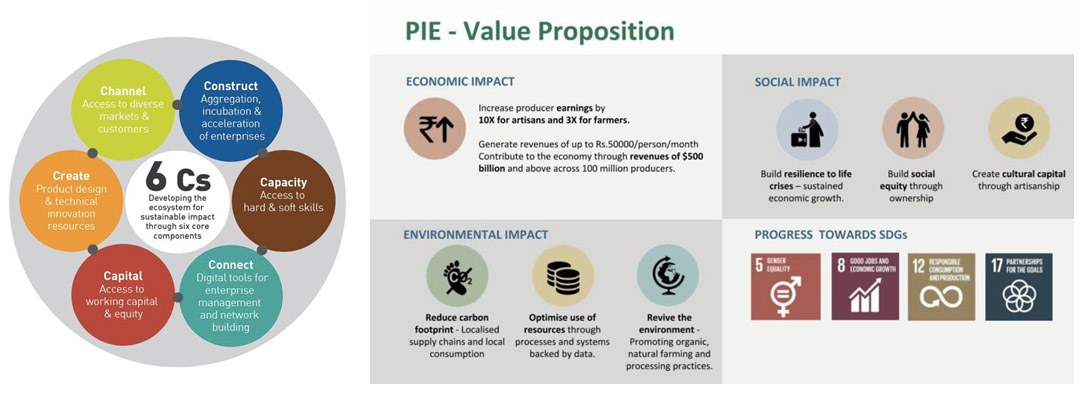
The 6C framework for enabling ecosystem development used by Industree foundation. The Platform for Inclusive Entrepreneurship is a societal Digital Platform that connects enterprises through digital tools to this ecosystem that is being co-created by a distributed global development effort.
Opportunities
Capstone and thesis Project opportunities for UG and PG students, long term research opportunities for doctoral students in Post Development Studies, collaborations, internships, research assistance etc.
